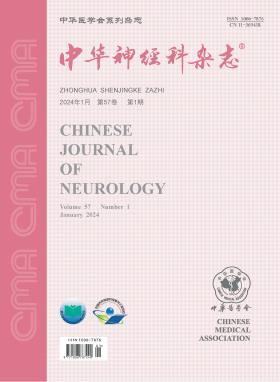Impacts of chronic sleep deprivation on learning and memory, autophagy and neuronal apoptosis in mice
Q4 Medicine
引用次数: 1
Abstract
Objective To establish chronic sleep deprivation mouse model, evaluate the learning and memory ability of mice and observe autophagy and apoptosis levels in mouse brain. Methods C57BL/6 mice (n=20) were randomly separated into sleep deprivation group and control group. After 2-month sleep deprivation by using an adapted multiple platform method, the behavioral performance of mice was measured by IntelliCage system. The expression of microtubule associated protein 1 light chain 3-Ⅱ (LC3-Ⅱ) and Beclin-1 was detected by Western blotting. Confocol microscopy was used to observe autophagosome. In addition, terminal deoxynucleotidyl transferase-mediated dUTP nick-end labeling (TUNEL) staining was performed to detect neuronal apoptosis level in mouse brain. Results The results of behavioral test showed that the incorrect visit ratio was much higher in sleep deprivation group than that in control group. Moreover, the expression of LC3-Ⅱ(sleep deprivation group 1.681±0.186, control group 1.125±0.048, t=2.892, P=0.027 6) and Beclin-1(sleep deprivation group 1.144±0.048, control group 1.006±0.017, t=2.721, P=0.018 6) in mouse hippocampus and cortex was significantly elevated in sleep deprivation group than those in control group. Accordingly, the confocal microscopy observation also revealed an increased nuclear LC3-positive puncta in hippocampus and cortex of sleep deprived mice (hippocampus in sleep deprivation group 1.665±0.153, in control group 0.819±0.072, t=5.024, P=0.002 4; cortex in sleep deprivation group 1.925±0.175, in control group 1.195±0.111, t=3.521, P=0.012 5). In addition, TUNEL staining showed a much higher percentage of TUNEL-positive nuclei in these brain regions (hippocampus in sleep deprivation group 47.24±4.15, in control group 19.26±3.72, t=5.025, P=0.007 4; cortex in sleep deprivation group 42.25±1.25, in control group 27.50±3.23, t=4.262, P=0.005 3). Conclusions Chronic sleep deprivation can impair the learning and memory, increase the expression of LC3-Ⅱ and Beclin-1, elevate the formation of autophagosome, and promote apoptosis in mouse brain. These findings suggest that autophagy and apoptosis might be involved in the cognitive impairment induced by chronic sleep deprivation. Key words: Sleep deprivation; Neurons; Autophagy; Apoptosis; Memory disorders; Disease models, animal慢性睡眠剥夺对小鼠学习记忆、自噬和神经元凋亡的影响
目的建立慢性睡眠剥夺小鼠模型,评价小鼠学习记忆能力,观察小鼠脑内自噬和细胞凋亡水平。方法C57BL/6小鼠20只,随机分为睡眠剥夺组和对照组。采用适应性多平台法剥夺睡眠2个月后,用IntelliCage系统测量小鼠的行为表现。Western blotting检测微管相关蛋白1轻链3-Ⅱ(LC3-Ⅱ)和Beclin-1的表达。共聚焦显微镜观察自噬体。此外,采用末端脱氧核苷酸转移酶介导的dUTP镍端标记(TUNEL)染色检测小鼠脑内神经元凋亡水平。结果行为测试结果显示,睡眠剥夺组的不正确访视率明显高于对照组。此外,睡眠剥夺组小鼠海马和皮层LC3-Ⅱ(睡眠剥夺组1.681±0.186,对照组1.125±0.048,t=2.892, P=0.027 6)和Beclin-1(睡眠剥夺组1.144±0.048,对照组1.006±0.017,t=2.721, P=0.018 6)的表达均显著高于对照组。因此,共聚焦显微镜观察也发现缺觉小鼠海马和皮层lc3核阳性点增多(缺觉组海马1.665±0.153,对照组0.819±0.072,t=5.024, P= 0.0024;此外,TUNEL染色显示,这些脑区TUNEL阳性核的比例明显高于睡眠剥夺组(海马组47.24±4.15,对照组19.26±3.72,t=5.025, P=0.007 4);结论慢性睡眠剥夺可损害小鼠大脑学习记忆功能,增加LC3-Ⅱ和Beclin-1的表达,增加自噬体的形成,促进细胞凋亡。这些发现提示,自噬和细胞凋亡可能参与了慢性睡眠剥夺引起的认知障碍。关键词:睡眠剥夺;神经元;自噬;细胞凋亡;记忆障碍;疾病模型,动物
本文章由计算机程序翻译,如有差异,请以英文原文为准。
求助全文
约1分钟内获得全文
求助全文

 求助内容:
求助内容: 应助结果提醒方式:
应助结果提醒方式:


